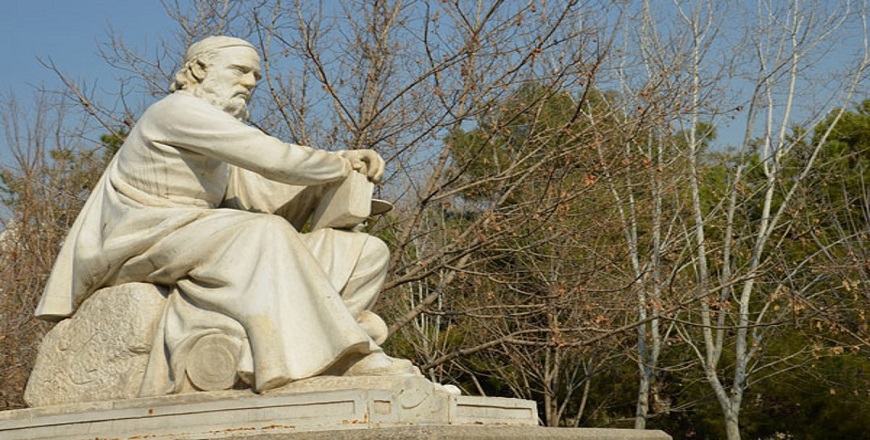

Omar Khayyam, Persian polymath, scientist, philosopher, astronomer and poet of the 11th century. He was born in 1048, Neyshabur , Iran, and died in 1131. He was renowned in his own country and time for his scientific accomplishments but mainly known to English-speaking readers through the translation of a collection of his Robaiyat (Quatrains), by the English writer Edward FitzGerald.
His name Khayyam (“Tentmaker”) might have been gained from his father’s job. He received a good education in philosophy and sciences in his hometown Neyshabur before traveling to Samarkand, where he completed his algebra book, on which his mathematical renown mainly rests.
Each of Khayyam’s quatrains shapes a complete poem in itself. His poetry reveals a man of deep thought, troubled by the questions of the nature of reality, eternal, and uncertainty of life. He has challenged religious doctrines, alluded to the hypocrisy of the time, cast doubt on almost every facet of belief, and appears to have advocated a type of humanism.
“The mysteries of eternity, neither you can know, nor I.
The cryptic letters, neither you can decode, nor I.
It comes from behind a screen, our converse, yours and mine.
And when the curtain falls, neither you remain, nor I.”
“Would that somewhere there were a place for resting,
Or that this endless road would lead to an arriving.
Or that after millennia, deep from the earth’s belly,
Like fragile green shoots, we had hopes of rising.”